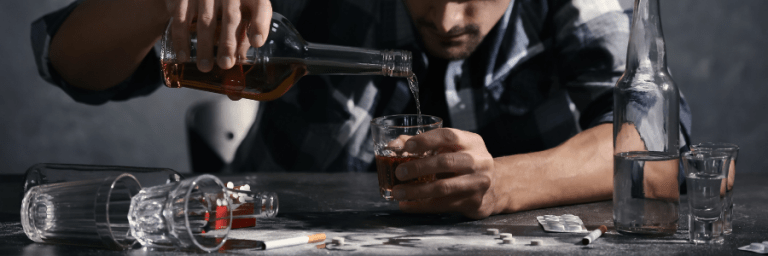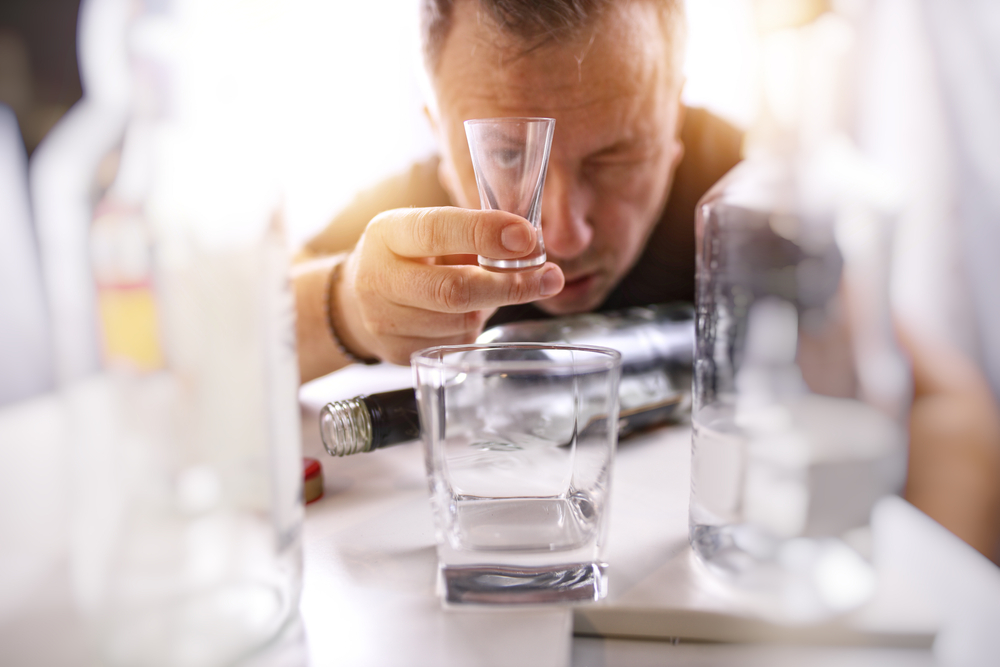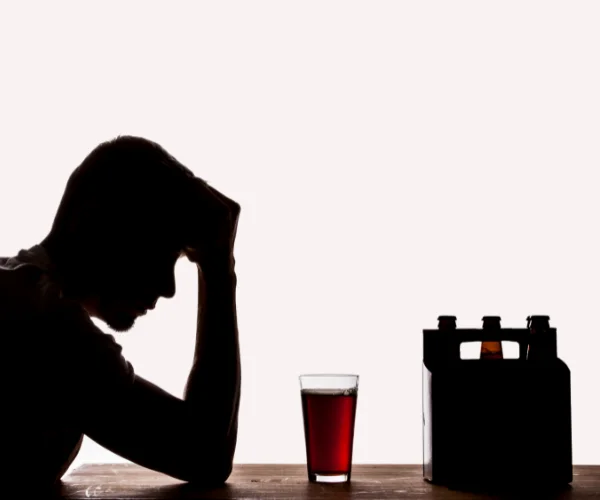- Home
- Help with Alcoholism: Where to Start
Help with Alcoholism: Where to Start
Useful Links
If you are an alcoholic and want to stop drinking, this article will help with alcoholism. We will show you how to identify alcohol problems, set realistic goals and find the right treatment and support groups. Starting your recovery journey can be tough but knowing what’s out there is the first step. Alcohol treatment services, including community-based programs and residential support overseen by local authorities, are also available to assist individuals with medium to high levels of alcohol dependence.
Key Points:
Identifying and admitting alcohol problems is the first step to recovery and getting help.
Creating a supportive environment and setting realistic goals is key to managing drinking and staying sober.
Using treatment options like behavioural therapies, medications and support groups like AA can make all the difference.

Understanding Alcoholism
Alcoholism, also known as Alcohol Use Disorder (AUD), is a chronic and relapsing brain disease characterized by an impaired ability to stop or control alcohol use despite adverse social, occupational, or health consequences. It is a complex condition that affects millions of people worldwide, causing significant harm to individuals, families, and communities. Understanding the nature of alcoholism is the first step towards seeking help and starting the journey to recovery.
Signs of an Alcohol Problem
Identifying the signs of an alcohol problem is crucial for early intervention and treatment. Some common signs include:
Drinking more than intended or for longer periods than intended
Wanting to cut down or stop drinking but being unable to do so
Spending a lot of time drinking or recovering from drinking
Craving or having a strong desire to drink
Continuing to drink despite physical or mental health problems
Neglecting responsibilities or activities due to drinking
Continuing to drink despite social or relationship problems
Needing to drink more to achieve the desired effect
Experiencing withdrawal symptoms when not drinking
Recognising these signs can help you or a loved one understand the severity of the problem and take the necessary steps to seek help.
Identifying Alcohol Problems

Admitting a drinking problem is the first step to getting help. Many people struggle to recognise their drinking habits due to denial or societal stigma around addiction. Identifying alcohol dependence is key to getting the right treatment and support.
Alcohol Use Disorder (AUD) is a reduced ability to stop or control drinking. This occurs even when faced with negative consequences. It’s diagnosed when two or more symptoms of alcohol use are present. If you or someone you know is drinking out of control or can’t stop, consider the effects and get help.
When talking to your GP about alcohol issues be honest about your drinking and problems. This will help them diagnose the severity of the issue and recommend the right treatment. Early detection of these signs can make all the difference.
Rehab Today by PCP - Get help with your addiction to alcohol drugs gaming gambling codependency
Assessing Drinking Habits
Assessing drinking habits is an essential step in understanding alcoholism. A healthcare professional can evaluate a person’s drinking pattern, including the frequency, quantity, and context of drinking. This information is crucial for determining the severity of the problem and guiding treatment decisions. By understanding your drinking habits, you can gain insight into the impact of alcohol on your life and take the first steps towards recovery.
Signs of Abuse
Signs of alcohol abuse include neglecting work or home responsibilities because of drinking. This inability to control drinking can affect many areas of life causing big personal and professional setbacks.
Withdrawal symptoms like anxiety, sweating and nausea are signs that drinking is a problem and you’re physically dependent on alcohol. Recognising these symptoms is key to getting help and starting your recovery.
Health Risks of Heavy Drinking
Long-term heavy drinking can cause serious health problems, including:
Liver damage like hepatitis and cirrhosis
Drinking more than 14 units a week can lead to liver disease and various cancers
Chronic drinking can cause digestive problems like ulcers and stomach inflammation
Heavy drinking affects physical health, causing liver disease and digestive problems. These risks mean you need to get help and change your drinking habits to avoid long-term damage.
How to Stop Drinking
Identifying a drinking problem is key to recovery. This means weighing up the pros and cons of change and dealing with others’ concerns. Can’t stop once you’ve started? Then, you need to assess your drinking habits and decide if you need to quit. Deciding and acting is key to progress.
Keeping a drink diary helps you track and monitor your drinking. Recovery is often a process of gradual change, cutting back or quitting altogether, depending on the severity of the drinking problem.
When getting treatment for alcohol use disorder, choose the right treatment over the approach.
Creating a Supportive Environment
Limit or remove alcohol from your home to reduce temptation. Clear out alcohol, barware and related items. Tell friends, family and co-workers about your goal to stop drinking to build a support network. Avoid people, places and activities that trigger the urge to drink and distance yourself from unsupportive people to stay focused on recovery.
Having a supportive environment is key to staying sober. Being surrounded by people who get and support your goals helps you manage temptations and triggers and makes a big difference to your recovery.

Setting Realistic Goals
Do you want to stop drinking entirely or cut back? Decide what your goal is. Set clear, specific and realistic drinking goals. Setting a quit date will commit you to it. Track your drinking for a few weeks, and you’ll see patterns and know what to do.
Setting SMART goals can break long-term goals into smaller steps. Choose specific days to drink and limit the number of drinks. Think about previous attempts to quit and what happened to inform your approach. Aim for at least three alcohol-free days a week to support your goal of cutting back.
Treatment for Alcohol Dependence
There are many treatment options for alcohol problems. Knowing these options is key to recovery. Behavioural treatments, medications and intensive programmes each have their own benefits. Overcoming alcohol use disorder is a process of treatment that may involve setbacks, but change is possible with evidence-based alcohol treatment.
When choosing a treatment programme, consider personal experience, cost, and insurance coverage. Look for programmes that use evidence-based methods, are individualised, and integrate mental health care. See your primary care doctor or GP as a starting point.
When Is It Time for Treatment?
It is time for treatment when an individual’s drinking habits are causing problems in their life. Some indicators that it might be time to seek professional help include:
Health problems, such as liver disease or mental health issues
Relationship problems, such as divorce or estrangement from family and friends
Work or school problems, such as absenteeism or poor performance
Financial problems, such as debt or bankruptcy
Legal problems, such as DUI or public intoxication
If you or someone you know is experiencing these issues, it may be time to consider seeking treatment for alcohol dependence.
Behavioural Treatments
Behavioural treatments aim to change drinking behaviour through therapy. Types include motivational enhancement therapy, brief interventions and cognitive-behavioural therapy each targeting different aspects of drinking behaviour.
12-step facilitation therapy involves active participation in mutual support groups for recovery support. Tangible rewards for achieving treatment goals is a key component of contingency management and increases the effectiveness of behavioural treatments. Research has shown these treatments work for alcohol dependence.
Alcoholics Anonymous (AA) uses a ‘12 Step’ programme to help members achieve and maintain sobriety through structured recovery processes.
Medications for Alcohol Use Disorder
Medications for alcohol addiction help with cutting back and relapse prevention. These medications help you stop or reduce drinking. Medications approved for Alcohol Use Disorder (AUD) in the US are Naltrexone, Acamprosate and Disulfiram.
These can be used on their own or with other treatments for better effect. Naltrexone reduces the urge to drink and helps with abstinence. Acamprosate prevents relapse by affecting brain chemicals related to craving. Disulfiram makes you feel unwell if you drink.
Intensive Programmes
Those with medium to high levels of alcohol dependence often need intensive rehabilitation if previous treatments have not worked. Alcohol treatment services, overseen by local authorities, are part of the intensive rehabilitation options available, including community-based programs or residential support. Treatment centres provide medical and therapeutic support during alcohol withdrawal and alcohol treatment.
Medical professionals will assess withdrawal symptoms to decide if detoxification is needed. Intensive programmes provide a structured environment and full support which is key to long term recovery.
Selecting a Treatment Program
Selecting a treatment program can be overwhelming, but it is essential to find a program that meets an individual’s specific needs. Some factors to consider include:
Type of treatment: inpatient, outpatient, or residential
Length of treatment: short-term or long-term
Treatment approach: 12-step, cognitive-behavioural therapy, or medication-assisted treatment
Support services: family therapy, group counselling, or individual counselling
Cost and insurance coverage
Consulting with a healthcare professional is crucial to determine the best course of treatment. They can help assess the individual’s needs and recommend a treatment program that is tailored to their specific situation. Personalized care and the right support can make a significant difference in the treatment process and long-term recovery.
Managing Withdrawal Symptoms
Alcohol cravings can be intense, especially in the first 6 months of quitting. Good treatment prepares you for the challenges of cravings and social pressure. Having a routine helps you manage cravings and stay motivated in recovery.
Managing withdrawal symptoms requires understanding and having strategies in place. Knowing the symptoms is key to managing and seeking support.
Safe Detoxification
Medical supervision during alcohol withdrawal is necessary to manage severe symptoms. Those with long term heavy drinking habits need medically supervised detoxification. Symptoms can include anxiety, sweating, nausea, rapid heart rate and seizures. If you have physical dependence seek professional help for safe stopping.
Contact local treatment services for medically supervised detox if you are experiencing withdrawal symptoms. Doctors can prescribe medication to manage symptoms safely. A short stay in a medically supported unit may be needed for safe detox.


Withdrawal Coping Strategies
Before: Withdrawal symptoms such as anxiety, tremors, nausea and insomnia occur as the body adjusts to being alcohol free. Staying hydrated helps with symptoms and overall health. A balanced diet rich in vitamins and minerals helps with recovery and reduces withdrawal symptoms.
After: Withdrawal symptoms:
Anxiety
Tremors
Nausea
Insomnia
Staying hydrated helps with symptoms and overall health. A balanced diet rich in vitamins and minerals helps with recovery and reduces withdrawal symptoms.
Light exercise can help with anxiety and mood during withdrawal. If symptoms worsen or become severe (seizures or hallucinations) seek medical help immediately. Professionals can prescribe medication to manage symptoms and prevent complications.
Supporting a Loved One with Alcoholism
Recognising the personal and social consequences of drinking is key to recognising alcohol misuse. Recognising the need for treatment may help them realise they need treatment for alcoholism. You can’t force someone to get help. They have to be ready for help on their own terms. Be patient and encourage the drinker to see the reality of their situation.
Support groups like Al-Anon and Alateen support friends and family of those with drinking issues. They provide help and understanding to those affected by a loved one’s drinking problem. Look after yourself while supporting someone with drinking issues.
Learn as much as you can about alcohol addiction and encourage the person you care for to get help for their alcohol addiction as soon as possible.
Talking to Them
Choose a time when they are not drunk or hungover. Choose a calm and private space to talk about drinking. Be honest and non judgemental about their drinking. Show concern not disapproval.
Stay neutral, don’t argue or lecture during the conversation. Explain your worries about their drinking in a caring way. Show them you really care about them. Acknowledge any progress they are making towards change.
Listen to them to understand their feelings and the underlying reasons for their drinking. They may feel defensive and deny the problem when you bring it up.
Getting Help with Alcoholism
Researching treatment options together can help them see they need help for their drinking. After researching treatment options help them make the best decision for their recovery. By getting professional help you can support the person you care for to take the first steps to recovery.
FAQs
How to stop drinking?
To stop drinking start by admitting the problem and setting realistic goals and keeping a drink diary. Get your friends and family to support you to help you on this journey!
What are the signs of alcohol abuse?
Knowing the signs of alcohol abuse can help you get help: look out for neglecting responsibilities, loss of control over drinking and withdrawal symptoms like anxiety and nausea. Awareness is the first step to recovery!
What treatments for alcohol dependence?
Treatments for alcohol dependence exist, including behavioural therapies, counselling and residential rehab options. Be brave and look into these options to get your life back!
How to support a loved one with alcoholism?
To support your loved one with alcoholism effectively communicate your concerns with compassion and choose the right time to talk. Get them to get professional help and consider Al-Anon for extra support.
